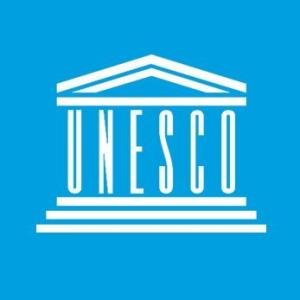UNESCO joined the 13th International Tourism Fair and 33rd International Handicrafts Fair
۱۷ فوریهٔ ۲۰۲۰
- The Ministry of Cultural Heritage Tourism and Handicrafts organized the 13th International Tourism Fair and 33rd International Handicrafts Fair in Tehran, Islamic Republic of Iran from 12 to 15 February 2020.

The Ministry of Cultural Heritage Tourism and Handicrafts organized the 13th International Tourism Fair and 33rd International Handicrafts Fair in Tehran, Islamic Republic of Iran from 12 to 15 February 2020.
In the exhibition opportunities and potentials of tourism and handicrafts from all the provinces of the country including food, local arts and crafts and music were presented. Handicrafts companies, electronic tourism companies; travel agencies, hotels, ecolodges, transportation companies, tourism institutes as well as international cooperators presented their activities and opportunities in the 15 halls on the exhibition. This exhibition received visitors from diplomatic corps, international community and visitors from all over the country.
During the opening of this exhibition, H.E. Dr. Ali Asghar Mounesan, Minister of Culture Heritage Tourism and Handicrafts of the Islamic Republic of Iran mentioned that apart from economic benefits tourism has other benefits for each nation including transmission of culture, peace and friendship.
Mr. Cvetan Cvetkovski, Officer -in-Charge of UESCO Tehran Cluster Office explained the relation between tourism and handicrafts from UNESCO’s point of view. He mentioned that engaging local populations in tourism development builds stronger and more resilient communities. Tourism can help local communities to preserve their culture and also helps people to develop a variety of skills. As a service sector with cross-cutting impact on agriculture, construction or handicrafts, tourism creates millions of jobs and business opportunities. Its capacity to lift people from poverty, promote gender empowerment and help protect the environment has made it a vital tool for achieving positive change in communities.
“This is particularly important when it comes to heritage of religious interest. Understanding the continuing nature of religious and sacred heritage, having the capacity to protect its authenticity and integrity, including its particular spiritual significance, and sharing the knowledge of our common history, are the three pillars necessary for building mutual respect and dialogue between communities.”, said Mr. Cvetkovski during his remarks.
During the opening of this event, the National Tourism brand was unveiled.



